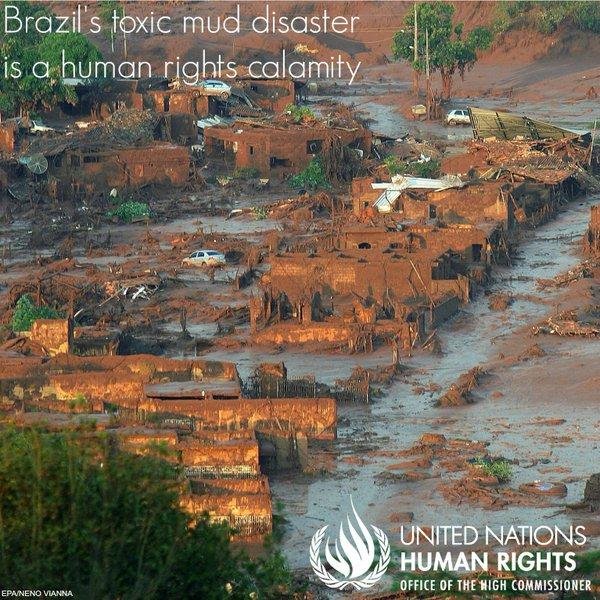UNITED NATIONS, Nov. 26 (UPI) -- Sludge from a burst dam in Brazil contains concentrated toxic waste, United Nations experts said, and not merely mud and water, as mining companies claimed.
John Knox, U.N. special rapporteur on human rights and the environment, and Baskut Tuncak, U.N. special rapporteur on human rights and hazardous substances, said in a report submitted Wednesday the collapse of a tailing dam at an iron ore mine in Mariana, Brazil, on Nov. 5, holding back over two billion cubic feet of mud and mining waste, resulted in the spread of deadly chemicals.















